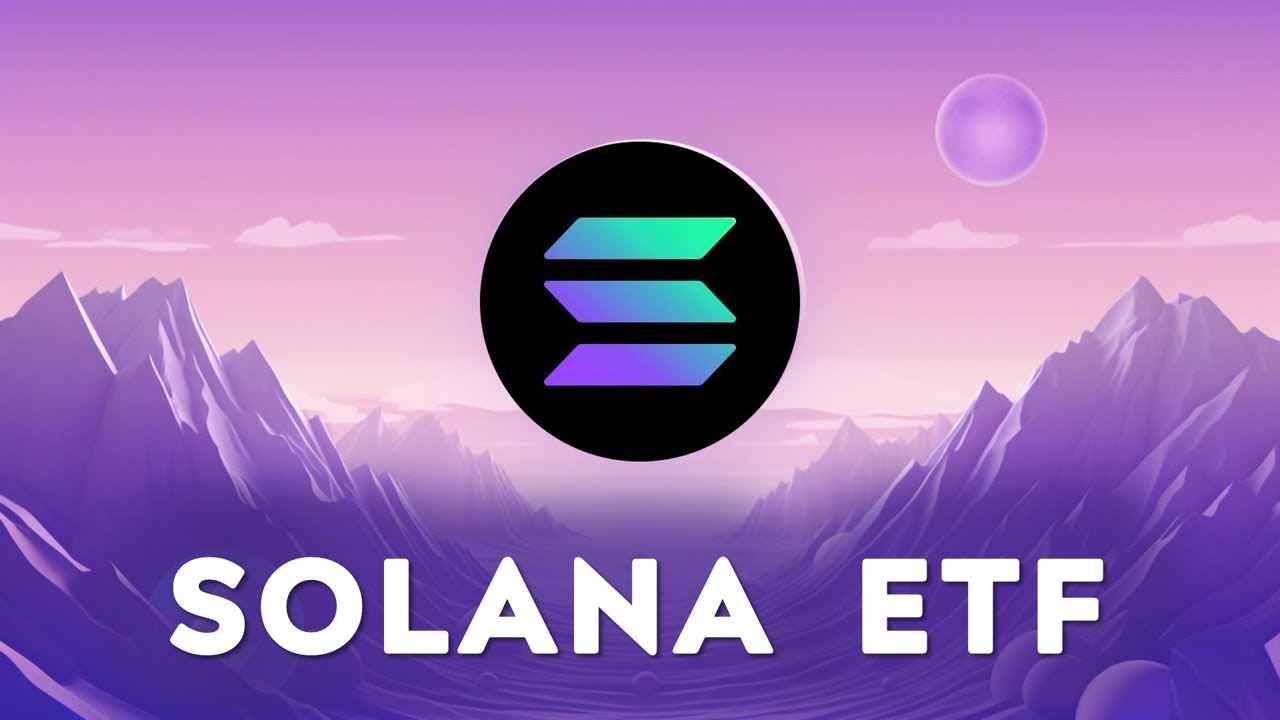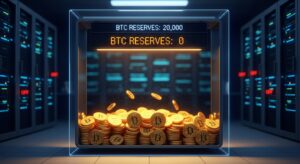The latest revelation of Solana’s (SOL) Exchange-Traded Fund approval timetable has the cryptocurrency community buzzing. The new ETF could allow institutional investors to invest in the fast-growing blockchain ecosystem, making this a crucial moment for Solana. However, this milestone has challenges. The SEC has been wary of cryptocurrency investment products, particularly Bitcoin and Ethereum ETFs. Solana’s proposed ETF is currently under SEC examination, and its clearance process may be lengthy. Solana’s ETF approval procedure, the SEC’s role, crypto market consequences, and Solana’s market position are discussed in this article.
Solana’s ETF
An important step toward Solana’s acceptance in the conventional financial industry has been the idea of a Solana ETF. Traditional investors can now have exposure to cryptocurrencies through ETFs without having to physically own or manage the underlying assets. A Solana ETF would facilitate institutional investors, including hedge funds, pension funds, and wealth managers, in accessing the Solana market without having to deal with the hassles of holding SOL tokens, given the impressive technological advancements of Solana and its rapidly expanding decentralized finance (DeFi) ecosystem.

The Solana blockchain has gained popularity among developers of decentralized apps due to its high throughput, cheap transaction prices, and quick processing rates. The blockchain’s validity and visibility among institutional investors may be further improved by the proposed Solana ETF. But the clearance process has proved contentious, especially with the SEC, which has a track record of closely examining investment vehicles linked to cryptocurrencies.
SEC Scrutiny ETF Approval Process
A Solana ETF requires strict SEC approval. The agency is skeptical about crypto ETFs, especially for Bitcoin and Ethereum. Bitcoin ETFs have achieved regulatory clearance following lengthy deliberations and meeting many standards. The SEC has not approved a Bitcoin spot ETF, despite the popularity of Bitcoin futures ETFs. Ethereum’s futures-based ETFs were similarly controversial since the SEC worried about cryptocurrency volatility and investor safeguards.
Solana’s ETF is now under review. The SEC worries about market manipulation, volatility, and consumer protection. Solana’s blockchain may not be decentralized and safe enough for this product, according to the SEC. The agency’s major goal is investor protection and fair and transparent ETF markets. If the SEC believes the ETF does not meet these high standards, the clearance procedure may be delayed.
Solana in Crypto Ecosystem
The launch of an ETF might change everything for Solana. Solana has rapidly become one of the leading cryptocurrencies by market capitalization and is one of the blockchains with the quickest rate of growth in the cryptocurrency industry. The blockchain has established itself as a formidable rival to Ethereum, particularly in the DeFi market, thanks to its emphasis on scalability and cheap costs. Numerous projects and developers have been drawn to Solana, resulting in the development of a flourishing ecosystem .
Developer engagement and adoption on Solana have increased dramatically in recent months across a variety of industries. In addition to giving institutional investors the chance to become exposed to a blockchain with significant real-world use cases, the launch of an ETF might further establish Solana as a leading blockchain. The SEC’s clearance is still up in the air, though, and its choice will probably have an impact on how Solana’s market expands in the future.
Broader Cryptocurrency Market
The approval of a Solana ETF might have significant effects on the entire bitcoin market. It would open the door for other cryptocurrencies to investigate comparable ETF offers by giving conventional investors a new option to have exposure to one of the most cutting-edge blockchain ecosystems. If authorized, the Solana ETF might serve as a market stimulant, drawing in more institutional capital and establishing the cryptocurrency sector as legitimate in the eyes of more cautious investors.
Furthermore, the approval of the Solana ETF might indicate a change in the SEC’s stance on financial products linked to cryptocurrencies. Even though the regulator has taken a careful approach, allowing Solana to have an ETF would be a big step in accepting cryptocurrencies as a real asset class. This might therefore open the door for additional creative financial solutions that are connected to cryptocurrency.
FUTURE Solana and ETF Approval
It’s evident that the cryptocurrency world is keeping a careful eye on the Solana ETF approval process. Although there is hope for institutional participation in Solana through an ETF, investors and stakeholders are still wary because of the current regulatory obstacles. Until clarity is obtained, the market is probably going to stay erratic, and
Solana’s price may change in reaction to any events pertaining to SEC scrutiny. More details about the SEC’s position on the ETF are probably going to surface in the upcoming months. Industry insiders are keeping a careful eye out for any clues on the SEC’s approach to Solana’s ETF approval and whether other cryptocurrencies could try to introduce their own ETFs.
Conclusion
Cryptocurrency demand has increased following the Solana ETF clearance timeline. Solana’s technological innovation and growing institutional demand make it an attractive ETF candidate, but SEC inspection presents substantial challenges. The SEC’s ruling might have a major impact on Solana’s market position and the cryptocurrency ecosystem, so investors and industry professionals must watch closely. The process of approving the Solana ETF tests the maturity of bitcoin investment products and U.S. regulatory clarity.
[sp_easyaccordion id=”98″]



